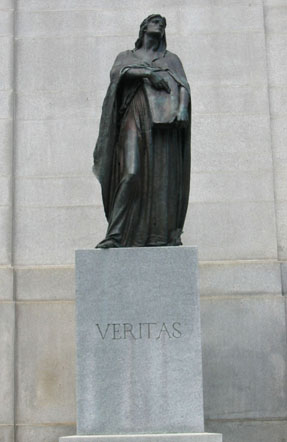In a case involving a sexual harassment complaint, the Supreme Court of Canada has ruled that the Canadian Human Rights Tribunal does not have the authority to award legal costs.
 In Canada (Canadian Human Rights Commission) v. Canada (Attorney General), Donna Mowat worked with the Canadian Forces for 14 years. Over the course of her career, she made several complaints about her superiors. Three years after her employment with the military ended, she filed a complaint with the Canadian Human Rights Commission alleging “sexual harassment, adverse differential treatment, and failure to continue to employ her on account of her sex.” The Canadian Human Rights Tribunal ruled in her favour and awarded her $4,000 in damages and $47,000 in legal costs.
In Canada (Canadian Human Rights Commission) v. Canada (Attorney General), Donna Mowat worked with the Canadian Forces for 14 years. Over the course of her career, she made several complaints about her superiors. Three years after her employment with the military ended, she filed a complaint with the Canadian Human Rights Commission alleging “sexual harassment, adverse differential treatment, and failure to continue to employ her on account of her sex.” The Canadian Human Rights Tribunal ruled in her favour and awarded her $4,000 in damages and $47,000 in legal costs.
The Attorney General of Canada applied for judicial review at the Federal Court regarding the tribunal’s jurisdiction to award legal costs. Following that decision, the attorney general appealed to the Federal Court of Appeal, which ruled that the tribunal did not have the authority to make a costs award under the Canadian Human Rights Act and quashed the tribunal’s decision.
In its ruling, Supreme Court justices Louis LeBel and Thomas Cromwell wrote: “In our view, the text, context, and purpose of the legislation clearly show that there is no authority in the Tribunal to award legal costs and that there is no other reasonable interpretation of the relevant provisions.
“Faced with a difficult point of statutory interpretation and conflicting judicial authority, the Tribunal adopted a dictionary meaning of ‘expenses’ and articulated what it considered to be a beneficial policy outcome rather than engage in an interpretative process taking account of the text, context and purpose of the provisions in issue.”
The SCC upheld the Federal Court of Appeal’s ruling and dismissed the appeal.
 In Canada (Canadian Human Rights Commission) v. Canada (Attorney General), Donna Mowat worked with the Canadian Forces for 14 years. Over the course of her career, she made several complaints about her superiors. Three years after her employment with the military ended, she filed a complaint with the Canadian Human Rights Commission alleging “sexual harassment, adverse differential treatment, and failure to continue to employ her on account of her sex.” The Canadian Human Rights Tribunal ruled in her favour and awarded her $4,000 in damages and $47,000 in legal costs.
In Canada (Canadian Human Rights Commission) v. Canada (Attorney General), Donna Mowat worked with the Canadian Forces for 14 years. Over the course of her career, she made several complaints about her superiors. Three years after her employment with the military ended, she filed a complaint with the Canadian Human Rights Commission alleging “sexual harassment, adverse differential treatment, and failure to continue to employ her on account of her sex.” The Canadian Human Rights Tribunal ruled in her favour and awarded her $4,000 in damages and $47,000 in legal costs.The Attorney General of Canada applied for judicial review at the Federal Court regarding the tribunal’s jurisdiction to award legal costs. Following that decision, the attorney general appealed to the Federal Court of Appeal, which ruled that the tribunal did not have the authority to make a costs award under the Canadian Human Rights Act and quashed the tribunal’s decision.
In its ruling, Supreme Court justices Louis LeBel and Thomas Cromwell wrote: “In our view, the text, context, and purpose of the legislation clearly show that there is no authority in the Tribunal to award legal costs and that there is no other reasonable interpretation of the relevant provisions.
“Faced with a difficult point of statutory interpretation and conflicting judicial authority, the Tribunal adopted a dictionary meaning of ‘expenses’ and articulated what it considered to be a beneficial policy outcome rather than engage in an interpretative process taking account of the text, context and purpose of the provisions in issue.”
The SCC upheld the Federal Court of Appeal’s ruling and dismissed the appeal.







